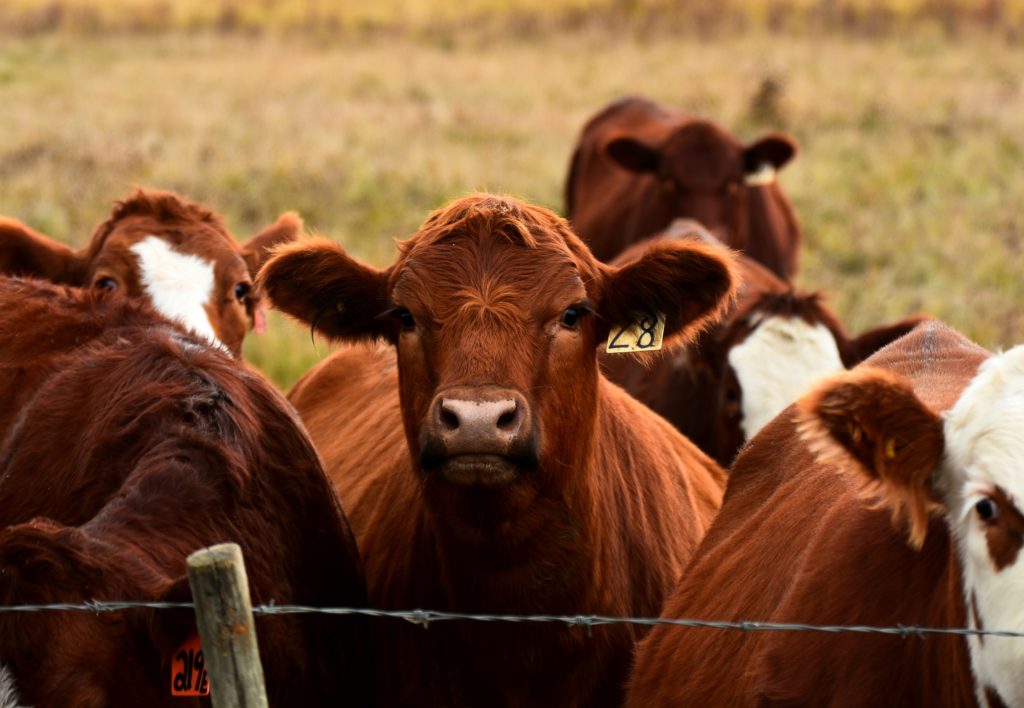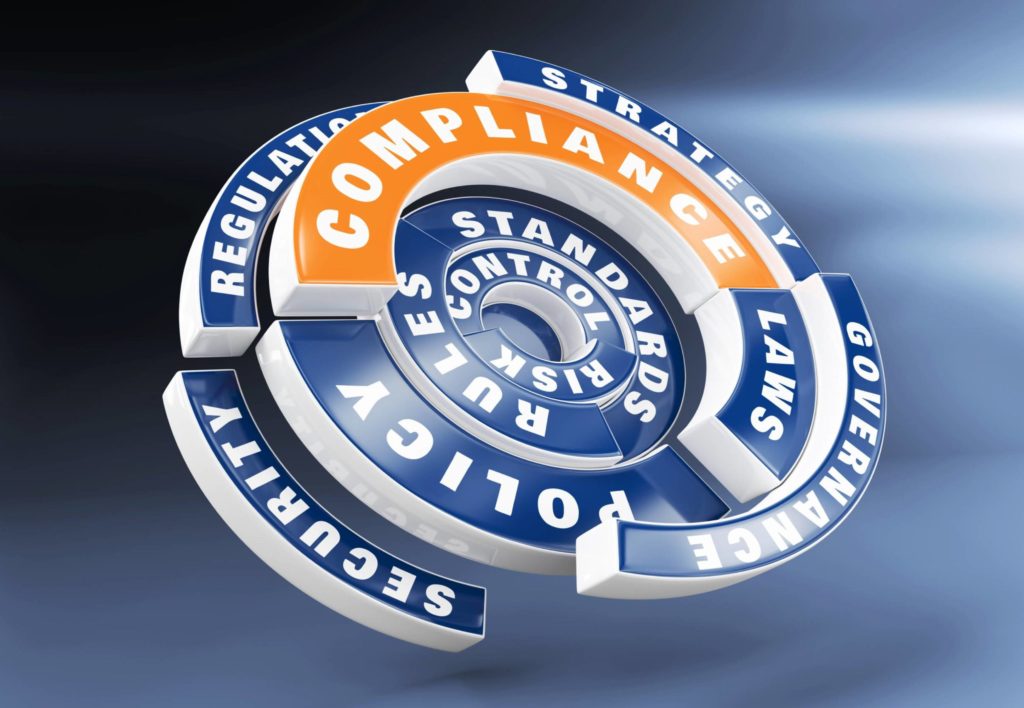Preventive Control for Animal Food
Preventive Controls for Animal Food
Risk-Based Preventive Control for Animal Food
The Preventive Control for Animal Food (PCAF) rule applies to food for animals other than man. This includes, but is not limited to, companion (pet) animals, such as dogs, cats, and horses; and food-producing animals, such as cattle, pigs, and chickens. This also includes wild animals and minor species such as wild birds, deer, fish, hamsters, and honeybees.
Preventive Control for Animal Food rule requires animal food facilities to have a food safety plan in place that includes an analysis of hazards to determine which ones need control and risk-based preventive controls to minimize or prevent those hazards.
Key requirements are:
1. Covered facilities must follow Current Good Manufacturing Practices (CGMPs) for animal food production.
2. Covered facilities must establish and implement a food safety system that includes an analysis of hazards and, if necessary, risk-based preventive controls. The rule sets requirements for a written food safety plan that includes:
3. Some animal food facilities will need a supply-chain program to address hazards in raw materials and other ingredients.
4. The definition of a ‘farm’ describes two types of farm operations. Operations meeting the definition of ‘farm’ are not subject to the Preventive Controls for Animal Food rule.
5. Feed mills that are part of farms (vertically integrated operations) are not covered by the Preventive Controls for Animal Food rule.
In-Depth Coverage: Importing Food Products
- What is FDA Food Safety Modernization Act (FSMA)?
- Prior Notice of Imported Foods
- FDA Food Facility Registration
- Risk-Based Preventive Controls for Human Food
- Risk-Based Preventive Control for Animal Food
- Protect Food against Intentional Adulteration
- What is Foreign Supplier Verification Program (FSVP)?
- What is FSMA Produce Safety Rule?
FDA and Pet Food Labeling
For animal food, both the CGMP and preventive control requirements are new. CGMPs are more basic; they’re things to be done in the course of normal business, like proper cleaning, pest management, and maintenance of equipment. CGMPs establish a base to make sure that the animal food doesn’t become contaminated and the preventive controls take it a step further. Preventive controls require a food safety plan that includes an analysis of potential biological, chemical and physical hazards and the steps needed to eliminate or significantly minimize that risk. You can determine where you need to make sure your process can and is controlling a hazard.
Food Facility Registration and Prior Notice
How do I register as an animal food facility? If I am registered as a human food facility do I need a second registration?
There is not a separate registration process for human and animal food. Your food facility registration must include applicable food product categories of any food manufactured/processed, packed, or held at a facility as identified on Form FDA 3537 (21 CFR 1.232(a)(7)). Also, if your facility’s human food manufacturing results in by-product that you pack or hold for distribution as animal food, you must select the applicable animal food product categories for the by-products that you pack or hold.
In-Depth Coverage: Country of Origin
- Country of Origin of Imported Merchandise
- Customs Ruling: Country of Origin
- Country of Origin: Food Products
- Country of Origin: Chemical and Pharmaceutical Products
- Country of Origin & Country of Manufacture: CBP vs. FDA
- Country of Origin: Substantial Transformation or Country of Assembly Test
- Country of Origin and Free Trade Agreement
- Country of Origin and Section 301
Are warehouses storing animal food subject to the PCAF rule?
Warehouses are required to register because they are holding animal food and, thus, need to comply with the PCAF rule with respect to holding activities. This would include compliance with (1) the training requirements in 21 CFR 507.4; (2) the Current Good Manufacturing Practice (CGMP) requirements in 21 CFR part 507, subpart B; and (3) possibly the hazard analysis and risk-based preventive controls requirements in 21 CFR part 507, subpart C.
The following exemptions/modified requirements may apply if your warehouse is solely engaged in the storage of unexposed packaged animal food:
If your registered facility is solely engaged in the storage of unexposed packaged animal food that does not require time/temperature control to significantly minimize or prevent the growth of, or toxin production by, pathogens, then your facility does not have to follow the hazard analysis and risk-based preventive controls provisions in 21 CFR part 507, Subpart C and the supply-chain provisions in 21 CFR part 507, subpart E. (21 CFR 507.10). Your facility is subject to the modified requirements in 21 CFR 507.51.
In-Depth Coverage: Importing Medical Device
Do I need a different PCQI for human food and human food by-products used for animal food? What animal food hazards need to be considered?
Under the preventive controls requirements, a facility is required to conduct a hazard analysis in which they identify and evaluate any biological, chemical, or physical hazards that may be associated with the animal food or the facility. The PCQI is responsible for performing or overseeing the hazard analysis. A facility is not required to have a separate PCQI for animal food. However, the PCQI must be qualified to develop and apply a food safety system for animal food.
Do the PCAF requirements apply if I donate or barter human food by-products rather than selling them?
The PCAF requirements (21 CFR part 507) apply to all facilities that are required to register with the FDA under section 415 of the Federal Food, Drug, and Cosmetic Act (FD&C Act) because they manufacture, process, pack or hold animal food for consumption in the United States. Therefore, if a facility is manufacturing, processing, packing, or holding animal food for consumption in the U.S., then they are expected to register and comply with the PCAF requirements, even if they donate or barter the animal food instead of selling it.
Do the PCAF requirements apply if I am a grocery or other retail store that is donating or selling human food by-products for use as animal food?
If you meet the definition of a retail food establishment and are exempt from registration, you would not have to meet the PCAF requirements (21 CFR part 507). However, that does not mean that you do not have any animal food safety obligations. As a general matter, firms, including those exempt from registration, must not introduce for delivery into interstate commerce any food that is adulterated under section 402 of the Federal Food, Drug, and Cosmetic Act (FD&C Act).
In-Depth Coverage: Importing Cosmetics
Do I need a different PCQI for human food and human food by-products used for animal food? What animal food hazards need to be considered?
Under the preventive controls requirements, a facility is required to conduct a hazard analysis in which they identify and evaluate any biological, chemical, or physical hazards that may be associated with the animal food or the facility. The PCQI is responsible for performing or overseeing the hazard analysis. A facility is not required to have a separate PCQI for animal food. However, the PCQI must be qualified to develop and apply a food safety system for animal food.
Do the PCAF requirements apply if I donate or barter human food by-products rather than selling them?
The PCAF requirements (21 CFR part 507) apply to all facilities that are required to register with the FDA under section 415 of the Federal Food, Drug, and Cosmetic Act (FD&C Act) because they manufacture, process, pack or hold animal food for consumption in the United States. Therefore, if a facility is manufacturing, processing, packing, or holding animal food for consumption in the U.S., then they are expected to register and comply with the PCAF requirements, even if they donate or barter the animal food instead of selling it.
Do the PCAF requirements apply if I am a grocery or other retail store that is donating or selling human food by-products for use as animal food?
If you meet the definition of a retail food establishment and are exempt from registration, you would not have to meet the PCAF requirements (21 CFR part 507). However, that does not mean that you do not have any animal food safety obligations. As a general matter, firms, including those exempt from registration, must not introduce for delivery into interstate commerce any food that is adulterated under section 402 of the Federal Food, Drug, and Cosmetic Act (FD&C Act).
In-Depth Coverage: Marketing and Advertising Compliance
- Federal Trade Commission (FTC) Advertising Rules
- Made in USA Standard
- FTC Regulation on Environmental Claims
- Adverting and Marketing on the Internet
- Label Claims for Conventional Foods and Dietary Supplements
- Dietary Supplement Advertising: What is FTC's Truth-in-Advertising Law?
- USDA Country of Origin Labeling (COOL)
- FTC Rules & Regulations on Food Advertisement
Human Food By-Products Used For Animal Food
What does this final rule for Preventive Controls For Human And Animal Food specifically require human food facilities to do when providing a by-product for use as animal food?
Processors already implementing human food safety requirements would not need to implement additional preventive controls or Current Good Manufacturing Practice (CGMP) regulations when supplying a by-product (e.g., wet spent grains, fruit or vegetable peels, liquid whey) for animal food, except to prevent physical and chemical contamination when holding and distributing the by-product. This regulation applies to human food facilities that both donate or sell a by-product for use in animal food. Labeling that identifies the by-product by the common or usual name must be affixed to or accompany human food by-products for use as animal food when distributed.
Further processing a by-product for use as animal food (e.g., drying, pelleting, heat-treatment) would require compliance with CGMPs to ensure the animal food’s safety and to make sure that the processing does not introduce hazards to the animal food. The company can choose to follow either human food or animal food CGMPs when further processing the by-product.
In addition, unless they are a qualified facility or otherwise exempt from Subpart C (hazard analysis and preventive controls) the facility would need to assess its processing and determine whether there are any hazards that would require a preventive control. A facility that appropriately determines through its hazard analysis that there are no hazards requiring a preventive control would document such a determination in its hazard analysis but would not need to establish preventive controls.
Do the preventive control requirements apply to human food by-products for use in animal food that are dried, frozen or slightly modified specifically to facilitate storage and transportation?
The CGMP and hazard analysis and risk-based preventive control requirements of the Preventive Controls for Animal Food rule apply to manufacturing/processing activities, including those performed to facilitate storage and transportation, unless an exemption applies. In draft guidance #239 Human Food By-Products for Use as Animal Food, several manufacturing/processing activities are identified for which there would only be limited CGMP requirements related to holding and distribution, including passive dewatering, as well as holding by-products at a particular temperature to facilitate transportation (e.g., keeping something in liquid or solid state).
Are the requirements of the rule the same for the transportation of human and animal food?
Yes, they are the same inasmuch as they require that food, whether human or animal food, be transported in a manner in which it will not become unsafe during transportation. However, we recognize that in certain instances, different practices to effectively accomplish this purpose have been established for the transportation of human and animal food. For example, certain types of equipment used for the transportation of human food and pet food use stainless steel food contact surfaces, while comparable equipment used for the transportation of animal feed uses a suitable non-stainless grade of steel called mild steel.
FDA-Regulated Products and Import Requirements
- What is Food Safety Modernization Act (FSMA)?
- Prior Notice of Imported Foods
- Food Facility Registration
- Risk-Based Preventive Controls for Human Food
- Risk-Based Preventive Control for Animal Food
- Standards for the Growing, Harvesting, Packing, and Holding of Produce for Human Consumption
- What is Foreign Supplier Verification Program (FSVP)?
- Protect Food against Intentional Adulteration
- FDA Regulated Product in Foreign Trade Zone (FTZ)
- Entry Review Process for FDA Regulated Products
- Country of Origin VS Country of Manufacture
- Foods Regulated by FDA or USDA: What is the Difference?
- Label and Labeling Claims for Conventional Food and Dietary Supplements
- What is USDA Country of Origin Labeling (COOL)?
- Import for Export of FDA Regulated Products
- FDA Regulated Products in Personal Baggage or Sending by Mail or Courier
- International Mail Facility (IMF) and FDA Regulation
- Importing Biological Product Regulated by CBER
- Importing Cosmetics and Voluntary Cosmetic Registration Program (VCRP)
- Importing Drugs into the U.S.
- Importing OTC Drugs into the U.S.
- Importing Veterinary Drugs into the U.S.
- Importing Tobacco Products into the U.S.
- Importing Medical Devices into the U.S
- Importing Food Products into he U.S.
- Importing Radiation-Emitting Products into the U.S.
Guidance on customs & logistics solution for traditional and e-commerce importers and exporters
Importer Security Filing (ISF)
An ISF is required when cargo (ocean only) laden on vessel at a foreign port is destined for shipment to the U.S. Under ISF rule, some importing information and details regarding cargo must be transmitted to the CBP at least 24 hours before goods are loaded onto the vessel.
Customs Clearance
All goods imported into the U.S. are required to be declared to CBP. Our customs broker will help you stay in compliance with customs laws and regulations and clear your goods quickly and efficiently with our electronic Automated Commercial Environment (ACE) and Automated Broker Interface (ABI) Single Window System.
Freight Forwarding
Looking for a freight forwarding partner? To move your cargo from its current location through customs to its final destination we will partner with you to find the best way for your business. Whatever your transportation, logistics or customs clearance needs, we will do our best to customize a solution for your needs.
Warehousing & Distribution
Our warehouse facility offers great potential for serving as a regional hub with over 145,000 SF storage capacity close to Los Angeles Airport & Los Angeles/Long Beach Sea port. With our extensive experience in freight services, your import/export cargo will be handled quickly and effectively.
Section 321 Entry
Section 321 entry allows importing free of duty and tax for shipments imported by one person on one day having a fair retail value in the country of shipment not more than $800. We provide our resident and non-resident clients with dedicated ACE eManifest solutions for Section 321 entry of all modes of transportation.
Non-resident Importer Program
If you want to sell your products in U.S. marketplaces, but you are a business owner located outside of the U.S. and do not have an entity or presence in the U.S., you need to be established as a Foreign Importer of Record before your products can be imported into the U.S. We can help you.
E-Commerce
The Internet has made it easy to find and purchase items from almost anywhere in the world. Our e-commerce experts will help you find the right solution for your international transportation, customs clearance, and delivery to your final destination. We also provide value-added repackaging, warehousing and distribution services.
Customs Clearance and Import Requirements
- Entry of Imported Merchandise
- What is Section 321 Entry?
- What is Automated Commercial Environment (ACE)
- What is an Automated Broker Interface (ABI)?
- Who is Ultimate Consignee?
- What is Non-Resident Importer Program?
- Country of Origin of Imported Merchandise
- What is the Country of Assembly?
- What if the FDA's Country of Manufacture?
- Marking of Country of Origin on U.S. Imports
- What is Customs Bond?
- Reconciliation Prototype and Bond Rider
- Who Needs a Customs Broker?
- What is Customs Ruling Program?
- Classification of Imported Goods
- How is imported merchandise appraised?
- What are Import Quotas?
- What are Trade Remedy Duties?
- Antidumping Duty (AD) and Countervailing Duty (CVD)
- What is Foreign Trade Zone (FTZ)?
- What is Importer Security Filing (ISF)?
- What is Temporary Importation under Bond (TIB)
- What is In-Bond Process?










